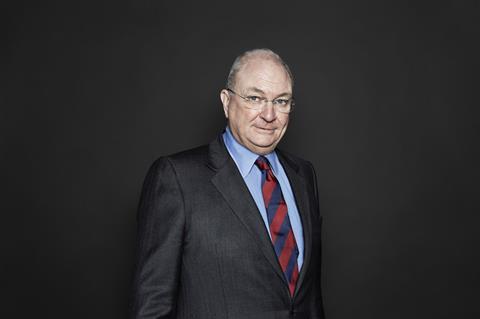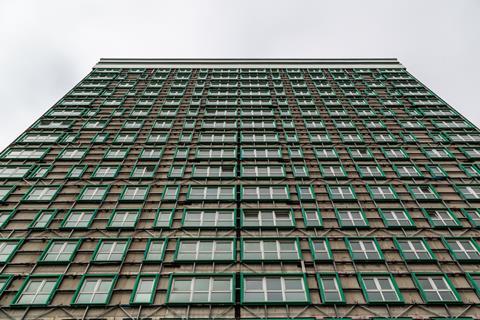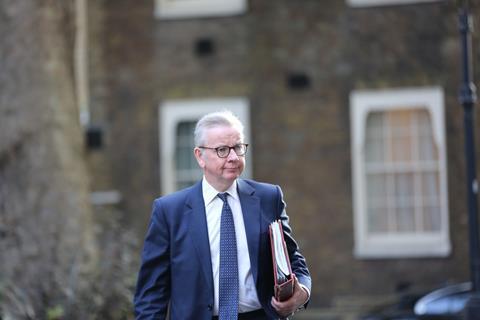HBF says levy ‘unacceptable’ while fears voice over impact on ’innocent’ SME builders
The housebuilding industry has hit back at the government’s plan to bring in a £3bn levy to pay for the repair of so-called “orphan” buildings hit by the fire-safety crisis.

The boss of the Home Builders Federation, Stewart Baseley, described housing secretary Michael Gove’s move, which came at the same time as 35 housebuilders signed up to a pledge to repair their own buildings, as “unacceptable”, while representatives of smaller firms said it would hurt “innocent” SME builders.
The comments came in response to Gove yesterday saying he would use powers in the Building Safety Bill to bring forward a new levy aimed at raising £3bn over the next decade to pay for improvement works on buildings of more than 11m, where the original developers cannot be traced.
The levy will be raised on planning approval of all new residential buildings, and comes despite the industry’s largest players agreeing to repair their own buildings, going back 30 years, without recourse to government funds – at a cost of at least £2bn.
The government has also recently introduced a separate Residential Property Developer Tax, which is designed to raise between £2bn-3bn to pay for the Building Safety Fund which funds remediation of blocks of more than 18m in height.
The HBF’s Basely said he supported the principle that leaseholders should not pay to remediate their buildings, but that UK housebuilders had already committed to remediate all their own buildings, plus £3bn through the Residential Property Developer Tax to pay for those built by foreign builders, local authorities and other parties.

“Any further levy is not proportionate and poses a serious threat to businesses, jobs, investment in new sites, housing supply and affordable housing provision,” he said. “Government must act to make other responsible parties pay their share and not take the easy option of targeting UK builders again for a problem they did not create.
“Saying ‘it’s too hard’ to get contributions from other parties is unacceptable and is an affront to UK businesses who employ hundreds of thousands and pay billions in UK taxes.”
Baseley’s quote refers to comments by Gove to the Levelling Up, Housing and Communities Select Committee, when asked why he was targeting UK housebuilders for funding, in which Gove said it was “just a statement of truth”, that companies that are domiciled in the UK were “easier to engage with and it is easier to be clear with them about what the consequences of non-engagement might be.”
Richard Beresford, chief executive of the National Federation of Builders (NFB), which represents mainly SME housebuilders, said the government had gone back on its word following lengthy negotiations with the sector. He said: “As well as not sorting this issue for five years, not being forthcoming with the list of guilty parties, unsafe buildings and required works, the government now appear to have decided that innocent builders of all sizes, who have never worked on any dangerously cladded building, should pay for the failures of those who have.
“Innocent leaseholders shouldn’t pay and neither should innocent builders. The entire housebuilding industry now appears to be paying for unsafe works that, for the vast majority of them, they never did.”
Beresford said that the decision to “raise £3bn on the backs of British business” will “impact SME businesses and the government’s own housebuilding ambitions”.

Gove’s announcement has been broadly welcomed outside the housebuilding sector and by cladding campaigners. The secretary of state said the pledge and the levy meant that the industry responsible for the fire safety crisis, rather than leaseholders, will pay.
Gove said: “I welcome the move by many of the largest developers to do the right thing.
“But this is just the beginning. We will do whatever it takes to hold industry to account, and under our new measures there will be nowhere to hide.”










No comments yet